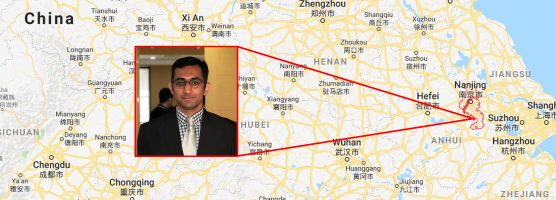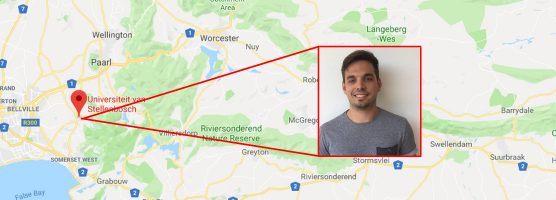Posted August 14th, 2019
New correspondent: Martinus Loots from Stellenbosch, South Africa
Today our team was strengthened by a second student from Stellenbosch University in South Africa. His name is Martinus Loots, studying Industrial Engineering. He’s a kind of person that hopes to do something of great significance and leave his mark. But Martinus is also enthusiastic about our video project to Cool Down the Planet. Being a correspondent means that he’s very motivated to help us find suitable subjects for video projects in his country. We first asked him to answer some questions.
Martinus, can you introduce yourself?
Hi, I am Martinus Loots, I am a person passionate about big ideas and the challenges they produce. I enjoy looking at the bigger picture and talking about solutions. I also have a love for the planet and believe we are all responsible for looking for solutions too complex problems. I am studying my undergraduate degree in Industrial Engineering and will be doing my Masters degree next year.
What motivated you to choose for the study that you’re doing?
I decided to do Industrial Engineering because of how much opportunities it allows. This direction is so brad and can be applied in so many spheres seeing as it is all focussed on optimisation. It has taught me to look at any system, analyse it and look for methods to perform the function of the system more efficiently.
What are your ambitions? How would you like to develop your future career?
My ambitions are to do something of great significance and leave my mark on the earth. Weather this is starting a business, designing something world changing or even inspiring people I have yet to find out. I am a open minded, experimental person that is still finding out exactly what is my calling.
Do you see any consequences from climate change in your region? If yes, can you give an example?
Climate change has had a massive impact on South Africa, especially in the Western Cape region where I am located. We have been through one of the worst droughts ever to hit dry South Africa. Cape Town was predicated at a stage to be the first world city to run out of water as we dd not receive enough rain during the rainy season. Climate change has decimated the agriculture industry in South Africa with the drought having a major effect on the 29% drop in the agriculture sector in the country in the last year.
What do you consider is a strong quality of the Cool Down The Planet formula?
This is an excellent platform to provide quantifiable problems to the greater engineering community to attempt to solve. I believe that this can be best utilised if University professors use these suggested challenges as possible final year project topics or inspirations for master’s thesis. This would motivate students to be more inclined to provide high quality solutions if they know it will contribute to their degree marks.

